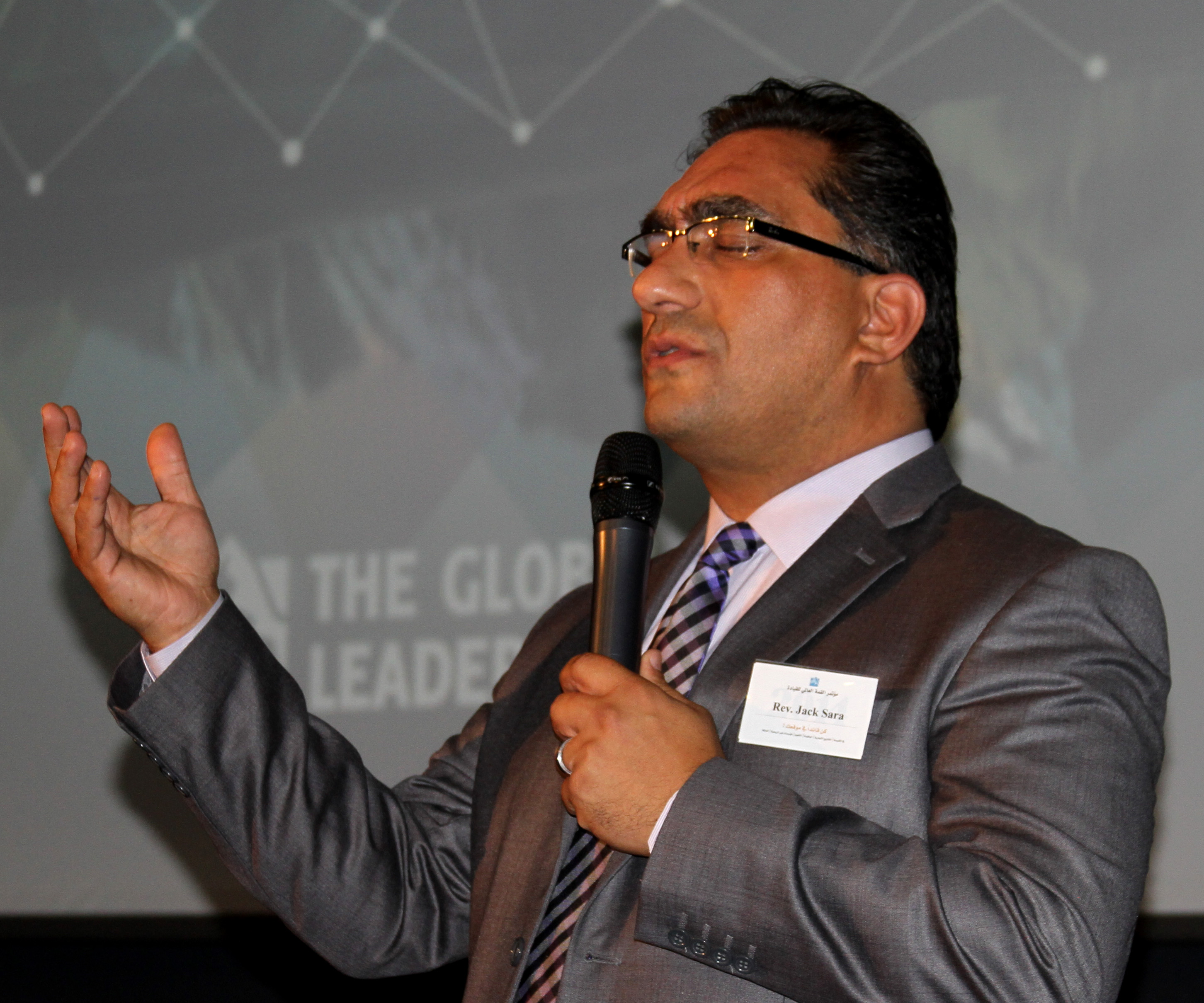
When You Pray for the Peace of Jerusalem, Remember to Pray for All of Its Residents

When You Pray for the Peace of Jerusalem, Remember to Pray for All of Its Residents
By our President Rev. Dr. Jack Sara to the Christian Post.
Last week I wrote an article sharing why I, as an evangelical Leader in the Middle East, disagree with President Trump’s Jerusalem declaration. I also shared some of my frustration concerning the wider American evangelical support of this decision. As I expected, there were both positive and negative responses to my article. I am grateful for those who’ve written to thank me for sharing a grass-roots perspective from ground zero in Jerusalem. To those who disagreed, please allow me to share a few more thoughts.
All my memories are of Jerusalem, the city of my birth: it was in the streets of the old city that I played as a child and it was in a church in the Christian Quarter where my wife and I served for many years as pastors. My parents still reside in their ancient house along the Via Dolorosa, near the station of where it is traditionally taught that Jesus fell under the weight of His cross. To the women who wept over His agony He said, “Daughters of Jerusalem, do not weep for me; weep for yourselves and for your children” (Luke 23:28).
Growing up by this station of the cross has shaped my life in ways I would have never dreamed as a child. As I look over Jerusalem, I believe that Jesus is still asking us to weep over the city. The same Jesus that asked the women to weep over their children has Himself wept over Jerusalem: “As He approached Jerusalem and saw the city, He wept over it” (Luke 19:41). Jesus wept over the city because of the faithless inhabitants within her who rejected the “things that make for peace” and who wanted a national god more than they wanted God Himself.
There are Christians around the world that pray for Jerusalem every day, quoting from Psalm 122:6 “Pray for the peace of Jerusalem; May those who love you be secure”. It is my observation that most of the people who quote this verse, assume that Jerusalem is a city of faith and that it is only Jewish. Neither of these are true.
They don’t realize that almost 300,000 residents of Jerusalem are Palestinian Muslims and Christians—the latter a mere 10,000 people. The Mount of Olives, for example, where Jesus wept over Jerusalem, is largely a Muslim neighborhood today. In neighborhoods like Shu’afat, the Palestinian residents of East Jerusalem—many of them people who lost their homes in 1948 and 1967—are not allowed Israeli citizenship and live in walled-off, slummy neighborhoods that receive very little municipal support for things like pavement, schools, electricity and other amenities— though they pay the same municipal taxes as everyone else in Jerusalem. The people who live in these densely-crowded neighborhoods are also vulnerable to home demolitions and losing their residency status if they leave the country for too long. The inequality in Jerusalem is staggering, as all who have dared to honestly observe it can attest. This inequality is also largely hidden from the eyes of the typical tourist who walks starry-eyed through the streets of the old city.
Jesus is still weeping over Jerusalem because its residents don’t know Him as Lord and Savior. I would estimate that out of the 900,000 residents of this divided, segregated and broken city, there are barely 1000 committed believers.
Among those who rejoiced in Trump’s declaration over Jerusalem, how many are actually concerned about the non-Jewish residents of Jerusalem and this land in general? I get the feeling that our existence is more of an annoyance to them than anything. Forgive my pain as I say this, but it seems that we Palestinian Christians are a thorn in the flesh of Dispensationalists and Christian Zionists. I think they are shocked to discover that God could save even us Arabs!
Of the negative responses that I received on my article, sadly, most of them were old-school arguments, based on misinterpretation of Scripture. None of them were brave enough to answer my primary question: What is their good news for the Palestinian people and what is their Gospel for the Arab nations in the Middle East?
Since God’s “restoration plan” has not worked so far according to their plans, I hope that more of them will begin to depart from Dispensational theology. Certainly, there are many evangelicals who do not hold to such theology or eschatology; who are able to see the fulfillment of Jerusalem as more than a solely Jewish city. I am thankful for the many American evangelicals who have an open heart to embrace justice and equality for all the people here. I am glad that not all evangelicals are like those so-called evangelical advisors to Trump. I notice that these people don’t represent the major evangelical denominations in the US, such as the American Evangelical Alliance which is part of the World Evangelical Alliance that has more than 600 million members globally.
If we desire to see the “peace of Jerusalem,” we need to think hard about what we mean by that phrase. As Christians, we all know that real peace can come only through the Prince of Peace sitting on the throne of our hearts. If a political leader has not experienced that peace, how can he impart what he does not himself possess?
It is my desire to see my city, Jerusalem, come under the Lordship of the Savior who paid the utmost sacrifice on behalf of all creation. I long for the day when we will see the residents of Jerusalem, from all religious backgrounds, crying: “Blessed is he who comes in the name of the Lord.”
Until that happens, may we see our evangelical brethren live up to their name. May they become true evangelists for all of Jerusalem and not a stumbling block for those who are on their way to Jesus. May we re-tune our hearts to the melody of God’s salvation for all of the nations. From now on, when we pray for the peace of Jerusalem, let us pray for all—and not just some—of the people who live here.

